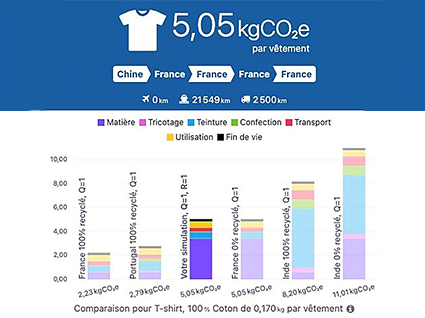
From boxtextile to reusable bactextile
17 April 2025
SNCF reinvents the flax industry in France
17 April 2025
The future digital clothing passport
Under European Union legislation adopted on 13 June 2024, the Eco-design for Sustainable Products Regulation (ESPR) aims to promote the sustainability of products by incorporating environmental criteria right from the design phase.
The CEPOVETT group is developing the means to model and assess the carbon equivalent impact and environmental footprint of its products, using specific data from its suppliers to define and share its strategy. The new ESPR regulation contains 4 major fields of action:
- The establishment of a framework of eco-design requirements, encouraging manufacturers to design products that minimise their impact on the environment throughout their life cycle
- Notification of harmful substances and additional information requirements
- The creation of a Digital Product Passport (DPP): an electronically accessible identity card for textile products, components and materials.
- A ban on destroying unsold textiles. Among these measures, the creation of a digital clothing passport, which is currently being tested, will gradually come into force from 2027.

Corinne MILIER
Quality / CSR Assistant CEPOVETT Group
My job is to measure the impact of our products, identify the levers that can be used to protect the environment and limit the effects of climate change. Gathering and using this data feeds into our eco-design approach and enables us to argue the positive impact of a proposal to the end customer.



